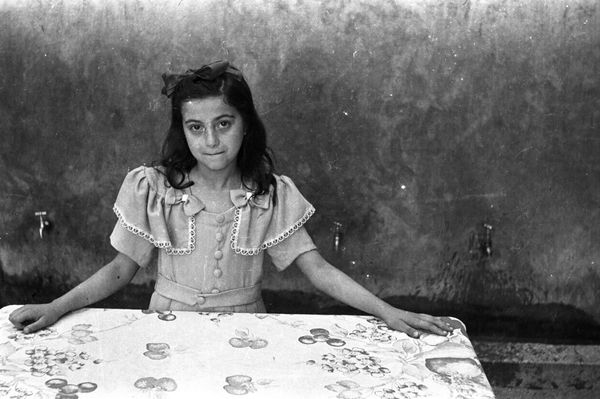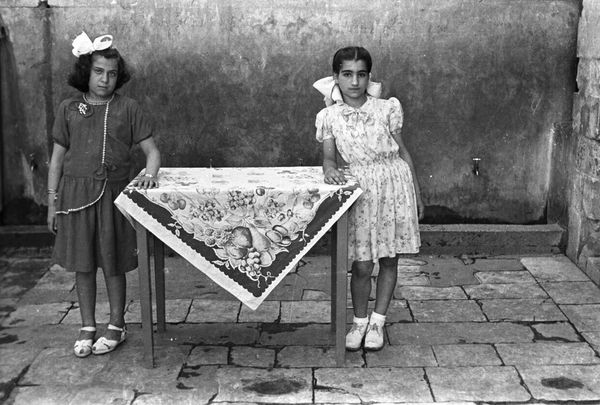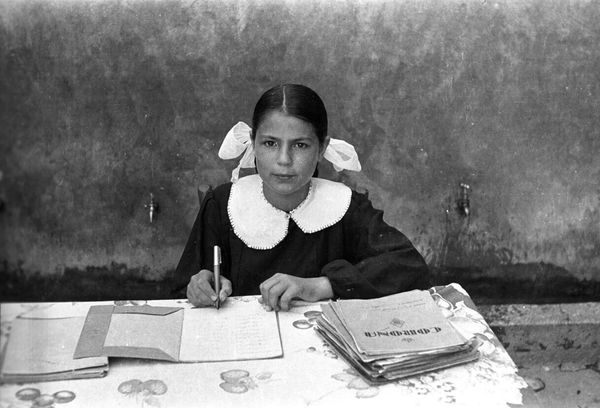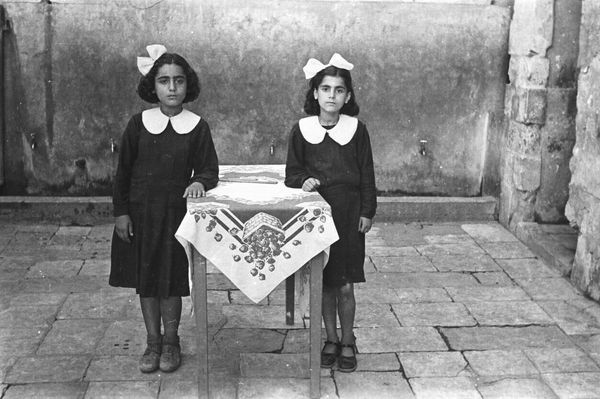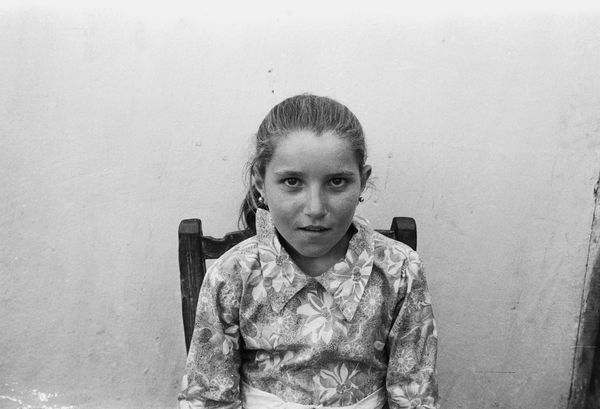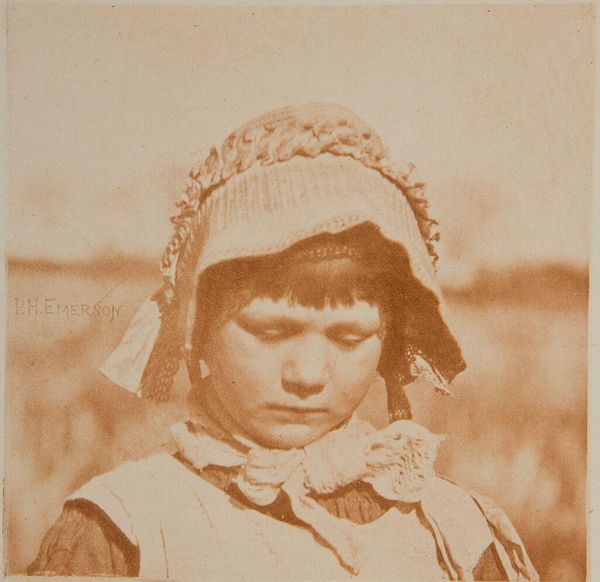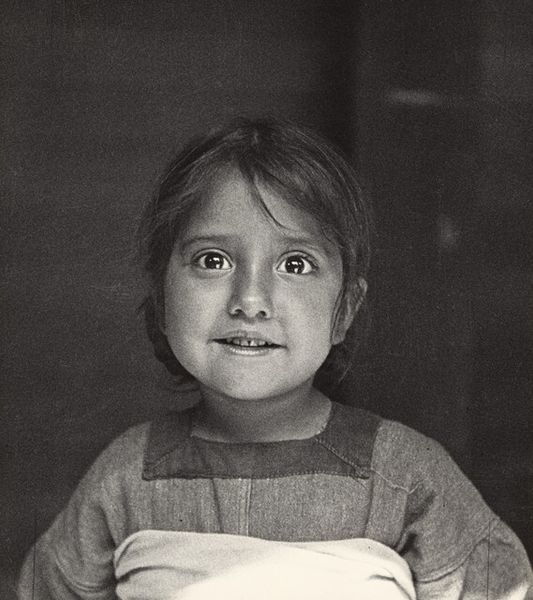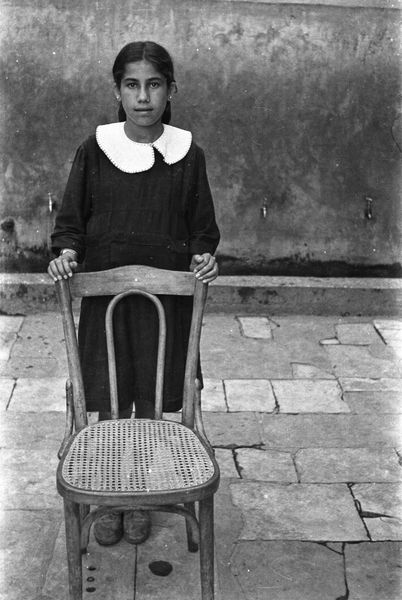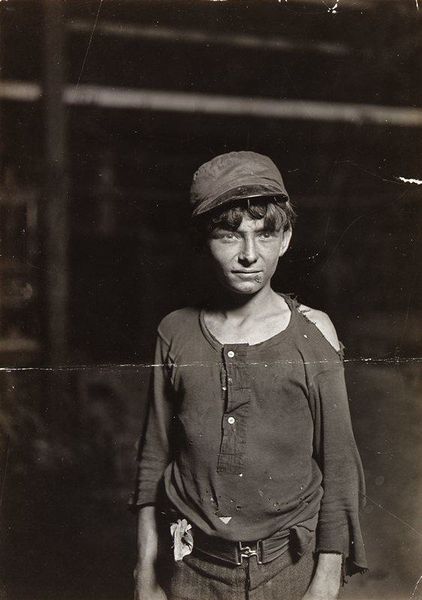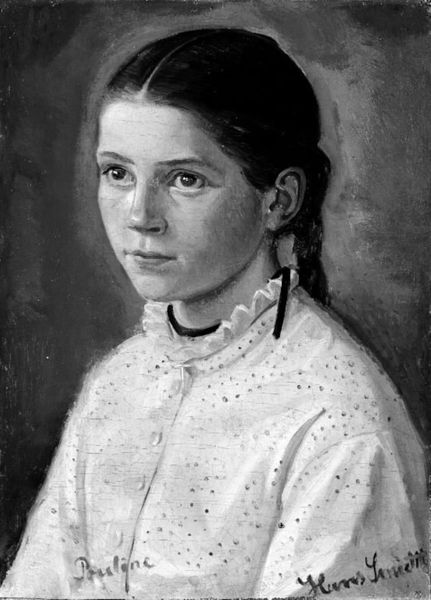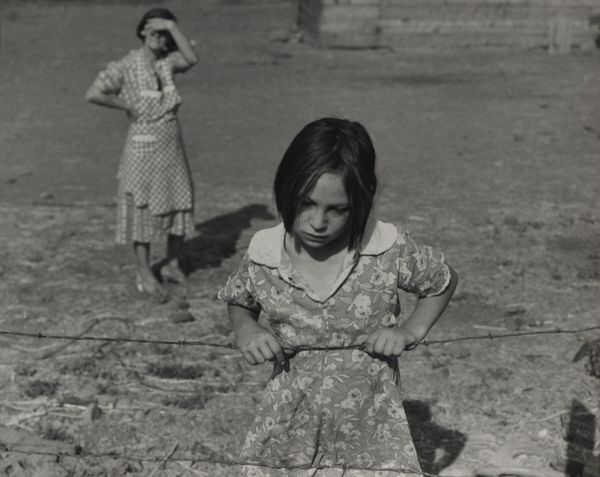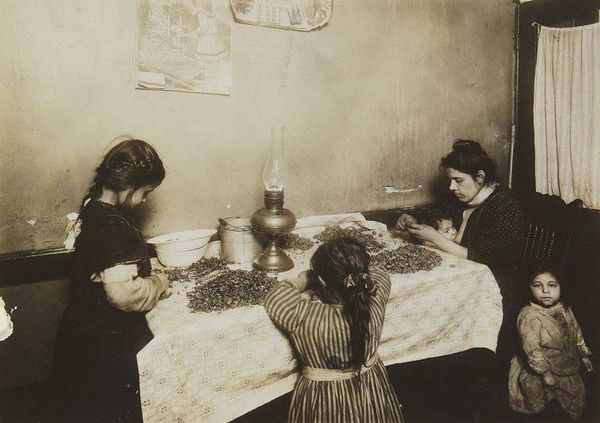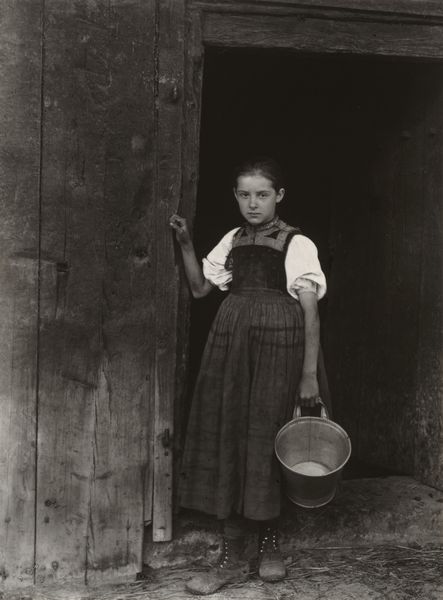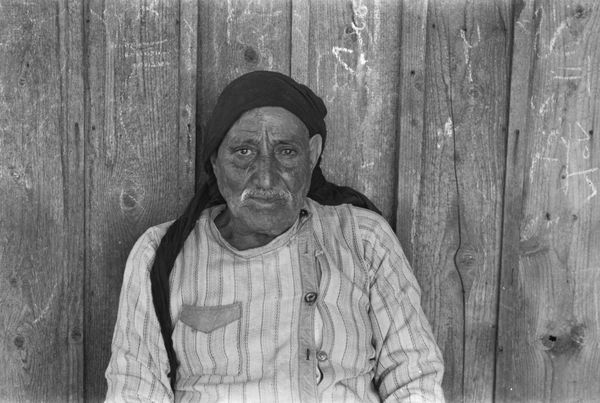
Student of Aisha Om el Mo’minin School for Girls. School courtyard, Saida, Lebanon, 1948-49. Hashem el Madani 2007
0:00
0:00
Dimensions: image: 150 x 228 mm
Copyright: © Akram Zaatari, courtesy Hashem el Madani and Arab Image Foundation, Beirut | CC-BY-NC-ND 4.0 DEED, Photo: Tate
Editor: This is Akram Zaatari’s photograph, "Student of Aisha Om el Mo’minin School for Girls. School courtyard, Saida, Lebanon, 1948-49." The photo is arresting with such a young woman in command of the space. What’s your interpretation of this work? Curator: It's a striking image, isn't it? The gaze of the girl, positioned centrally, directly engages the viewer. Consider the historical context: this is post-colonial Lebanon. What statements might Zaatari be making about female agency and representation in a moment of national identity formation through his recovery of Madani's photos? Editor: So you're suggesting this image isn't just a portrait, but a commentary on the role of women in shaping a nation? Curator: Precisely. And it invites us to reflect on whose stories get told and how, particularly within patriarchal structures. Editor: That gives me a lot to think about! Curator: Indeed. It’s a potent reminder of the power of photography to both reflect and shape social narratives.
Comments
tate 10 months ago
⋮
http://www.tate.org.uk/art/artworks/zaatari-student-of-aisha-om-el-mominin-school-for-girls-school-courtyard-saida-lebanon-p79428
Join the conversation
Join millions of artists and users on Artera today and experience the ultimate creative platform.
tate 10 months ago
⋮
“The school was headed by Nafissa Kotob, who was the aunt of my friend Sami Kotob. She would ask me to photograph the students twice a year. I would request them to bring me a chair and a table in order to articulate the space of the picture - this was especially important when more than one person was in the frame. Girls from wealthy families purchased their uniforms at the beginning of the year, whereas others would often wait until the middle of the year.” Gallery label, June 2011
